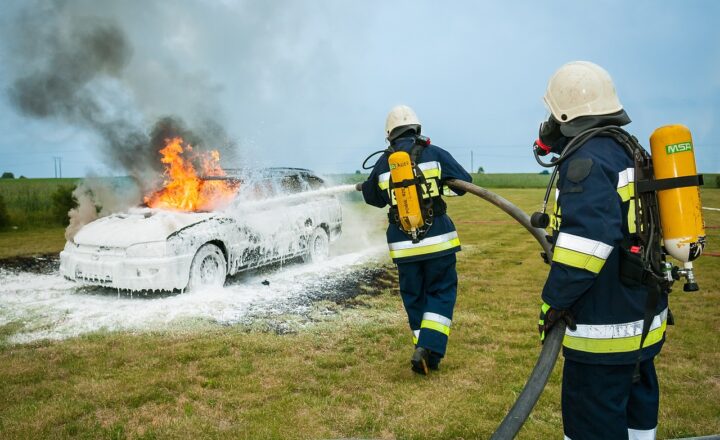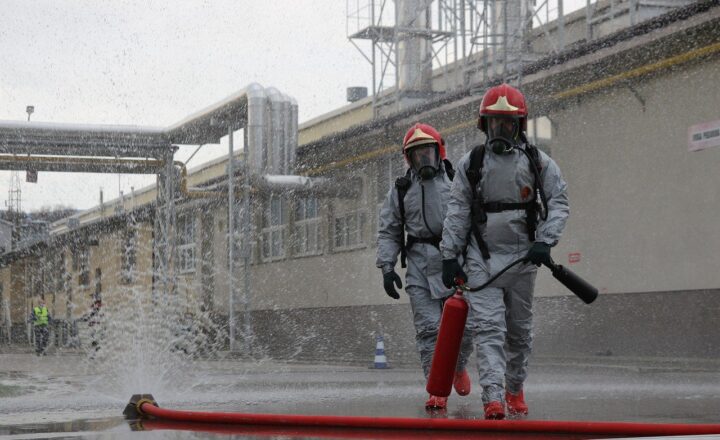
When it comes to fire safety and prevention, fire marshals serve as frontline defenders in our communities. With rising concerns over fire hazards in homes, businesses, and wildlands, understanding the integral role of fire marshals is more crucial than ever. In this comprehensive article, we delve into their responsibilities, training, and the impact they have on public safety and fire prevention.
1. Who is a Fire Marshal?
A fire marshal is a trained professional who oversees the enforcement of fire codes and safety regulations. Their role can vary based on local laws but generally includes a mix of fire prevention inspections, education, and investigation of fire incidents.
Fire marshals typically work for municipal fire departments, but they can also be found in the private sector, insurance companies, or government agencies. Their primary goal is to minimize the risk of fire incidents and ensure that preventive measures are in place.
2. Key Responsibilities of Fire Marshals
Fire marshals are tasked with several critical responsibilities:
- Fire Inspections: Conducting routine inspections of commercial and residential properties to ensure compliance with fire safety codes and regulations.
- Fire Safety Education: Offering educational programs to the public and organizations about fire prevention, emergency evacuation procedures, and general fire safety awareness.
- Investigation of Fires: Carrying out investigations to determine the cause of fires, analyzing fire scenes, collecting evidence, and interviewing witnesses and involved parties.
- Permit Issuance: Reviewing and granting permits for activities that could pose fire risks, including the use of flammable materials or events with large gatherings.
- Collaboration with Other Agencies: Working with police, building inspectors, and emergency responders to ensure comprehensive public safety strategies.
These responsibilities form a vital part of the fire safety culture, helping to educate the public and enforce policies that can save lives and property.
3. Training and Qualifications
To become a fire marshal, individuals must undergo extensive training and education. This typically includes:
- Fire Science Education: A foundation in fire science, fire prevention, and safety regulations, often pursued through community colleges or universities.
- Firefighter Certification: Many fire marshals start as firefighters and gain hands-on experience in emergency response.
- Specialized Training: Training in investigation, arson detection, hazardous materials, and fire code enforcement is also essential.
- Certification: Some regions require specific fire marshal certifications from recognized organizations to ensure competence.
Commitment to ongoing education and training is critical for fire marshals, keeping them up to date with the latest technologies and strategies for fire prevention and investigation.
4. Fire Prevention Initiatives
Fire marshals are deeply involved in a variety of fire prevention initiatives. These can include:
- Community Programs: Developing workshops, school programs, and community events that teach fire safety practices such as the importance of smoke detectors and creating fire escape plans.
- Inspection Programs: Regular inspections of buildings to identify fire hazards and ensure compliance with fire codes.
- Public Awareness Campaigns: Utilizing social media, flyers, and public service announcements to promote fire safety during peak seasons or during emergency situations.
- Policy Advocacy: Engaging with local government to advocate for better safety codes and regulations to minimize fire risks.
These initiatives are vital in raising awareness and reducing fire incidents within communities.
5. Investigating Fires: From Cause to Conclusion
Once a fire occurs, fire marshals step in to begin their investigative process. Their work involves:
- Scene Analysis: Examining the fire scene to collect and analyze evidence, determining the origin and cause of the fire.
- Working with Law Enforcement: Partnering with police to investigate potential arson cases or to rule out criminal activity.
- Report Writing: Documenting findings thoroughly and creating reports that can be utilized for legal proceedings or insurance claims.
- Expert Testimony: Serving as expert witnesses in court cases related to fire incidents and providing a detailed explanation of the investigation findings.
This investigative process not only aids in resolving incidents but also contributes to understanding fire behavior and improving fire safety codes and community practices.
6. Conclusion: The Impact of Fire Marshals
Overall, the role of fire marshals is invaluable in both preventing fires and investigating their causes. Through their dedication to safety education, vigilant inspections, and thorough investigations, fire marshals play an essential part in protecting lives and property. As communities continue to evolve and face unique fire safety challenges, the role of fire marshals will only become more critical.
An increased emphasis on fire prevention initiatives and stronger safety regulations, driven by fire marshals, can lead to significant reductions in fire incidents, fostering safer environments across communities.
By understanding their role and supporting their efforts, we can all contribute to a culture of fire safety, ensuring a safer future for everyone.






